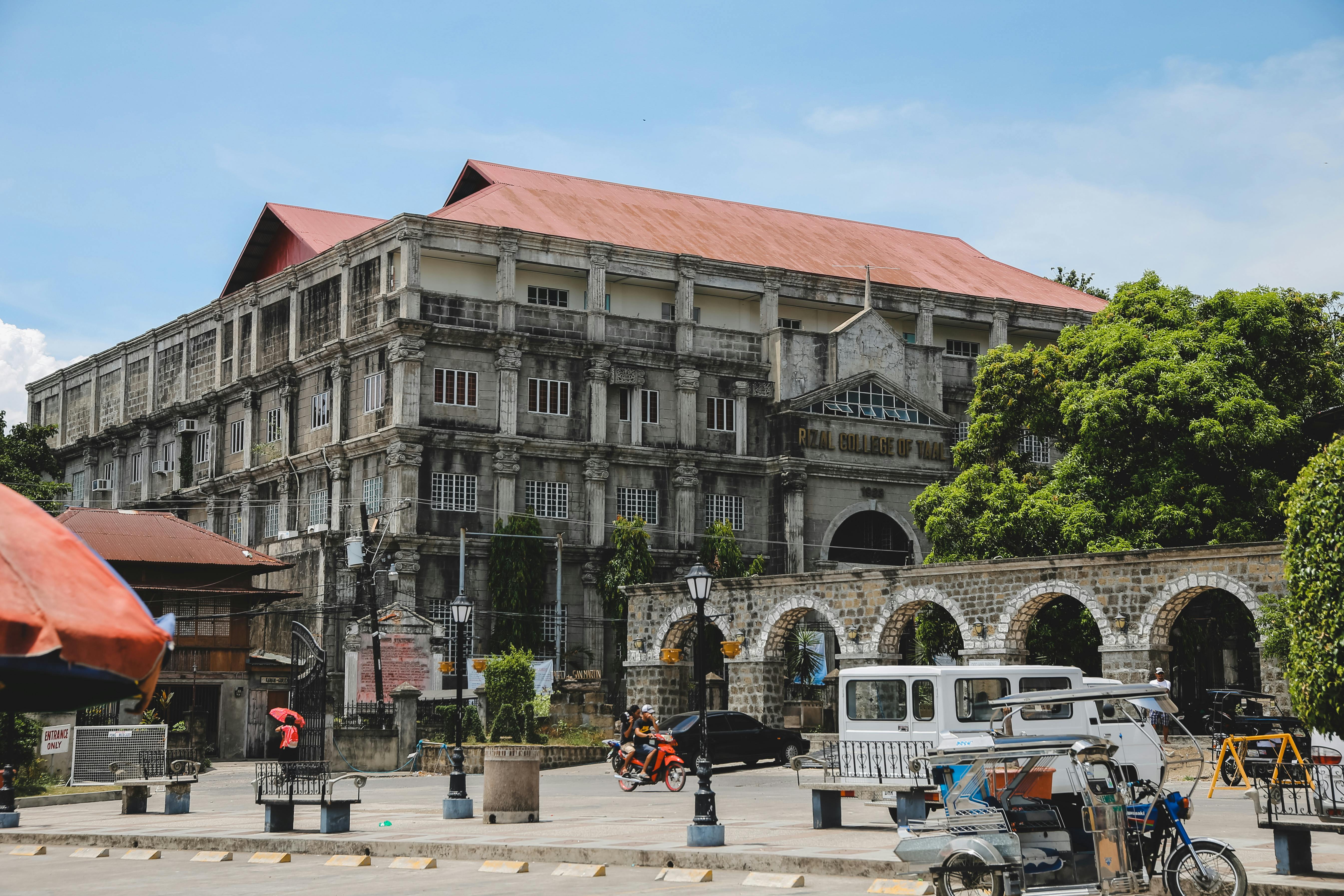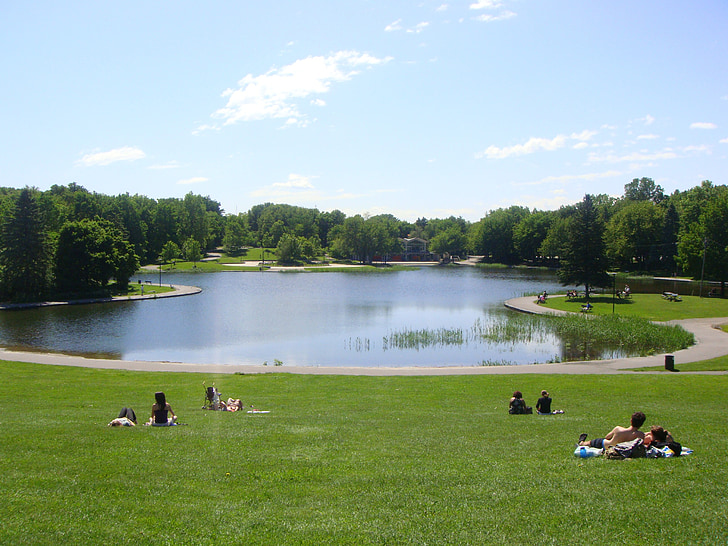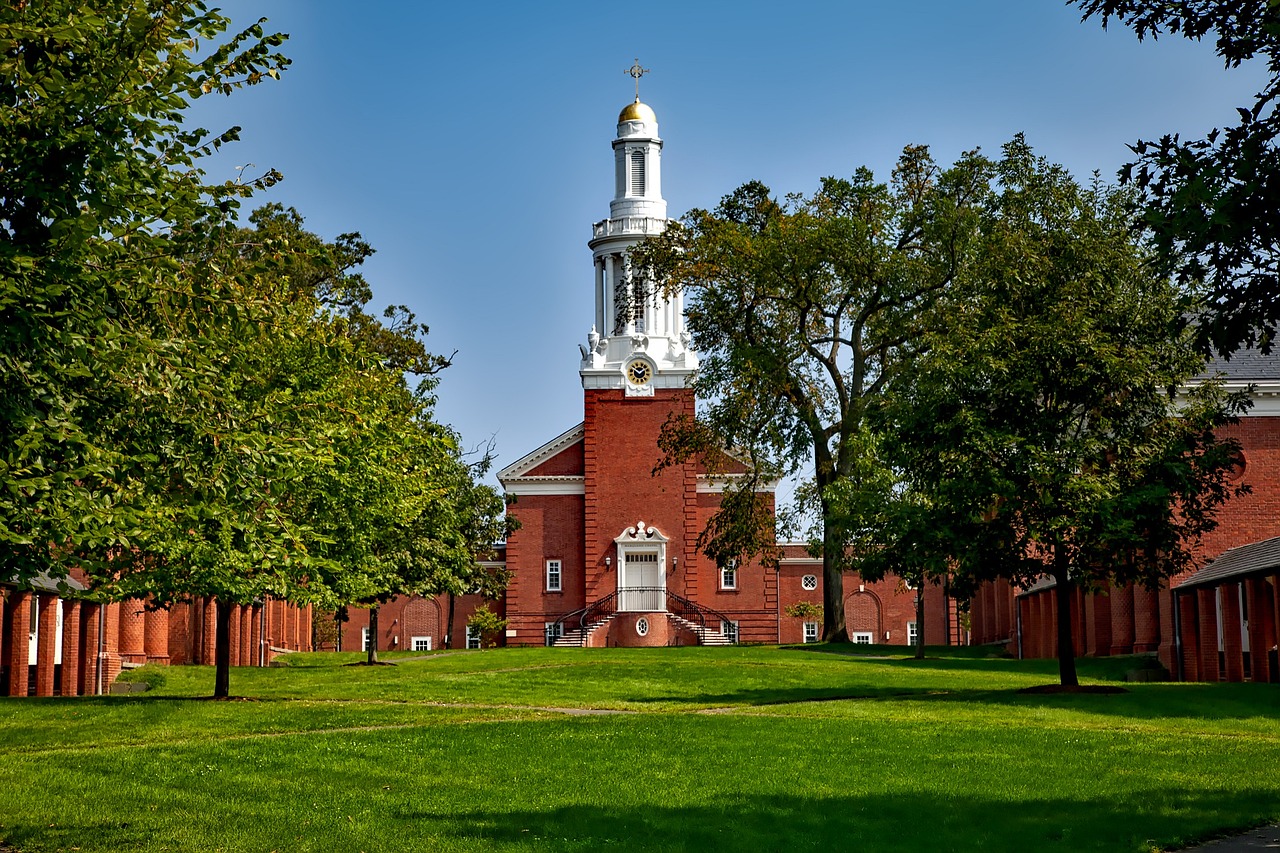What are the best places to live in Canada? Experienced expats know all too well that information is key to a successful relocation. It’s not just about the country or city you’re moving to, it’s about the exact place you’ll call home. So if you want to live in Canada, but don’t know exactly where, here are our top picks for the 10 best cities to live in Canada.
Best Places to Live in Canada: Factors to Consider
Finding the best city to move to in Canada is not easy. Price is the number one consideration. The average home price in Canada in 2025 is approximately $676,000 to $678,000, which is not a small amount of money, even for a high-income family. Beyond that, the place has to be able to support your personal growth and professional goals. The commute shouldn’t be too long either, or you’ll spend your precious time on public transportation and may not be able to find a job, which doesn’t pay off.
Therefore, the best cities to live in Canada must score high in many aspects, such as:
- Median Income
- Home Prices
- Average monthly rent
- Crime Rate
- Unemployment Rate
- Population Growth
- Population Density
- Weather (Number of Sunny Days)
- Walkability
10 Best Places to Live in Canada
While choosing the best places to live in Canada depends on your personal preferences, we have compiled a list for your reference.
1. Toronto, Ontario (One of The Best Places to Live in Canada for Families)
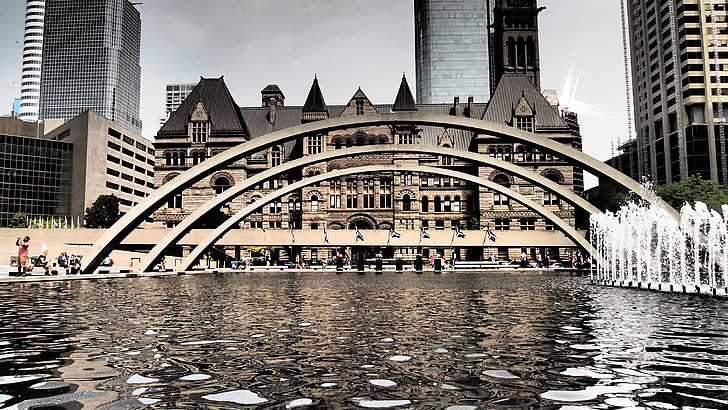
Toronto is the largest populous city in Canada, one of the largest cities in Canada, and one of the most multicultural cities in the world. This fusion of cultures is reflected in citywide celebrations throughout the year, such as the Caribbean Carnival, one of the largest street festivals in North America, and the Toronto International Film Festival, which attracts film lovers from around the world. We’ll analyze why Toronto is one of the best places to live in Canada from the following aspects:
Toronto is a vibrant city with upscale residential areas and bustling business districts, as well as a wealth of cultural and recreational activities.
Toronto has a mild continental climate, with winter temperatures usually around -5℃, and lows may reach around -18℃. The temperature in summer is usually around 20℃. Although the winter is relatively cold, it is generally a livable city.
Toronto is one of the largest populated cities in Canada, with a population of about 2.7 million and a highly diverse population, with immigrants and students from all over the world. The population here is highly diverse, with immigrants and students from all over the world.
Toronto is the economic capital of Canada, home to the Toronto Stock Exchange, and the fifth most populous city in North America. It is a hotspot for finance, commerce, telecommunications and media, with many domestic and foreign companies. This ensures a vibrant job market and continues to attract skilled labor from all over the world. Toronto’s growing influence in technological innovation, especially in the fields of AI and fintech, highlights its position as a leading global city with many job opportunities.
Toronto has many internationally renowned universities and colleges that provide high-quality education and attract a large number of students from all over the world every year, such as the University of Toronto, York University, OCAD, etc.
Toronto is one of the most multicultural cities in the world, with immigrant communities from all over the world. In addition to Canada’s official languages, English and French, there are more than 250 ethnic groups and 190 languages spoken in the Toronto area. This diversity forms the cornerstone of Toronto City’s identity, providing a rich cultural experience for residents, students and visitors. Neighborhoods such as Chinatown, Little Italy and Greektown allow people to immerse themselves in different cultures through special food, festivals and retail.
Toronto’s well-connected transportation network makes it stand out from other cities. The vast transportation network covers almost every corner of Toronto City. The Toronto Transit Commission (TTC) operates three modes of transportation: bus, subway and streetcar.
| Item | Number |
|---|---|
| Home Price | $1,128,100 |
| Family Income | $129,000 |
| Families with Children | 39.9% |
| Crime Severity Index | 51.87 |
| Unemployment | 7.8% |
| Access To Primary Care Provider | 89.7% |
2. Vancouver, British Columbia (One of The Best Places to Live in Canada for Young Adults)
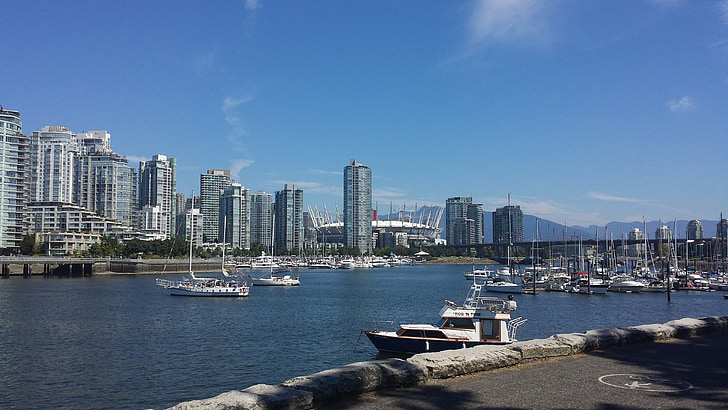
It’s no surprise that Vancouver has been named one of the best places to live in the world multiple times. From mountains to beaches, islands, coastlines, urban centers, and beautiful residential suburbs, Vancouver has it all. That makes it one of the most livable cities in Canada. If you’re planning on moving to Vancouver, the only downside is the housing market.
Vancouver is a coastal city in the Lower Mainland region of British Columbia, Canada, and is the third largest metropolitan area in Canada. It’s no surprise that Vancouver has been named one of the best places to live in the world multiple times. From mountains to beaches, islands, coastlines, urban centers, and beautiful residential suburbs, Vancouver has it all. If you’re planning on moving to Vancouver, the only downside is the housing market.
Vancouver has a mild climate and is suitable for tourism all year round. The city’s grass is evergreen and the flowers are colorful. The temperature in summer is generally around 20℃ and the temperature in winter is above 0℃. There is little snow in winter, but there is plenty of rain, so it is known as the “Rainy Capital of Canada”.
Vancouver is a place where many people choose to immigrate. Immigrants make up a large part of the city’s population, so it is not uncommon to see Nigerians, Muslims, Filipinos, or immigrants from other countries.
Vancouver is a major port city and important economic center in Canada. It is also the political, cultural, tourism and transportation center of western Canada. In addition, Vancouver has a highly developed film production industry and is the third-largest production center in North America after Los Angeles and New York. It is known as the “Hollywood North“. Vancouver’s manufacturing, high-tech and service industries are very developed, while resource industries, food industries, primary manufacturing and agriculture are also important pillars of Vancouver’s economy.
Vancouver has more than 10 well-known institutions of higher education, 74 elementary schools, 18 secondary schools and 7 adult education centers, including the University of British Columbia, Simon Fraser University, Fairleigh Dickinson University, Emily Carr University of Art and Design, British Columbia Institute of Technology, Vancouver Community College, Kwantlen University College, Langara College, Columbia College, etc.
Vancouver has relatively convenient transportation, with a variety of transportation options for residents and tourists to choose from. The main modes of transportation in Vancouver are Skytrain, Bus, Taxi, Bike, and Ferry.
| Item | Number |
|---|---|
| Home Price | $1,205,800 |
| Family Income | $117,300 |
| Young People Aged 20-29 | 14.2% |
| Crime Severity Index | 51.87 |
| Unemployment | 5.8% |
| Walkability Score | 80 |
3. Ottawa, Ontario
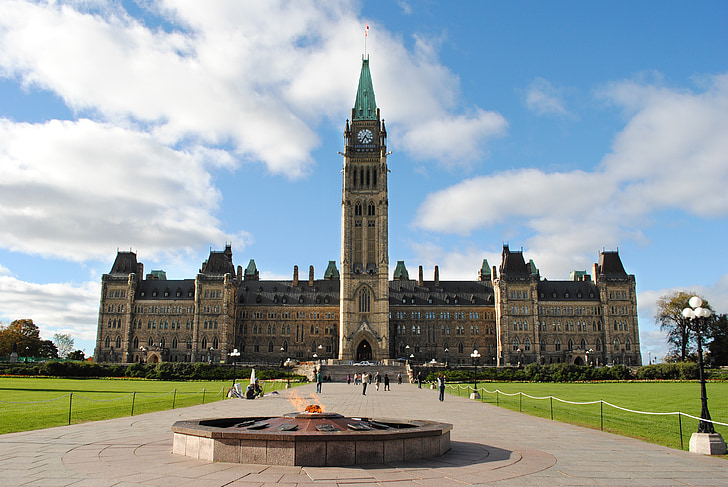
Ottawa is a very popular choice for expats. The city consistently ranks highly for quality of life, and cleanliness. It is one of the most livable cities in the world. Besides, Ontario is also frequently ranked as the best province to live in Canada.
Living in Ottawa, people can enjoy a high quality of life and a wealth of cultural and recreational activities. As the capital of Canada, Ottawa has a complete infrastructure and public services, including high-quality health care, education system, public transportation and public safety. In addition, Ottawa also has numerous museums, art galleries, concerts, drama performances and other cultural activities, providing residents with a wealth of cultural and entertainment options.
Ottawa, Canada has a mild and pleasant climate with four distinct seasons. Because it is located in the inland area of eastern North America, it is affected by the continental climate, with relatively cold winters and relatively warm summers.
Winter usually starts in November and lasts until March of the following year. There is heavy snowfall and low temperatures, but compared with other parts of North America, Ottawa’s winter is not particularly cold.
Summer starts in June and lasts until September. The temperature is moderate and there is plenty of sunshine, which is a good time for outdoor activities. Spring and autumn are relatively short, but the climate is pleasant, suitable for travel and living.
Ottawa is the fourth largest city in Canada. The city has a diverse population, with more than 20% of the population being immigrants. The largest ethnic group in the city is British, followed by French, Irish, Chinese, Scottish, and Native Americans.
On the one hand, since Ottawa is the seat of the federal government, there are many job opportunities provided in government departments and agencies. Stable federal government jobs help maintain a low unemployment rate and a stable economy.
On the other hand, the northern part of Ottawa City is an area where high-tech development is concentrated, also known as the “Silicon Valley North“. Many technology companies were born here, including the e-commerce platform Shopify, which is one of the most successful technology companies in Canada. Ottawa has a diversified economy with major industries including technology, tourism, healthcare and education.
Ottawa has many excellent institutions of higher education, the most famous of which are the University of Ottawa, Carleton University, Algonquin College, University of Quebec at Ottawa, and McMaster University. Every year, countless students from all over the world come to Ottawa to achieve their academic goals.
Ottawa’s transportation options include buses, light rail, taxis, bicycles, and self-driving. The buses and light rail are operated by the same company, and the bus routes are dense, reaching all parts of downtown Ottawa (although they are a bit slow).
The light rail has only one route, but it is easy to connect and transfer with the bus system. Taxis or driving a car are fast and convenient, suitable for those who value time more than saving money. Bicycles have a narrow range of applications, and for safety, it is best to use them only in the suburbs or scenic areas. Living here, the best way to get around is to buy a day/weekly/yearly ticket, mainly taking the bus and light rail, and occasionally taking a taxi or driving a car.
Thanks to Ottawa’s stable economy and a large influx of professionals, Ottawa’s real estate market has stability and growth potential. Housing options are diverse, from apartments in bustling downtown areas to spacious suburban houses that are family-friendly.
Houses for sale in Ottawa are less volatile and have a good chance of appreciating, making them an attractive option for those looking to buy and settle in the city.
| Item | Number |
|---|---|
| Home Price | $643,700 |
| Family Income | $126,700 |
| Sunny Days Per Year | 303 |
| Crime Severity Index | 52.91 |
| Unemployment | 5.30% |
| Access To Primary Care Provider | 89.7% |
| Walkability Score | 45 |
4. Victoria, British Columbia (One of The Best Places to Retire in Canada)
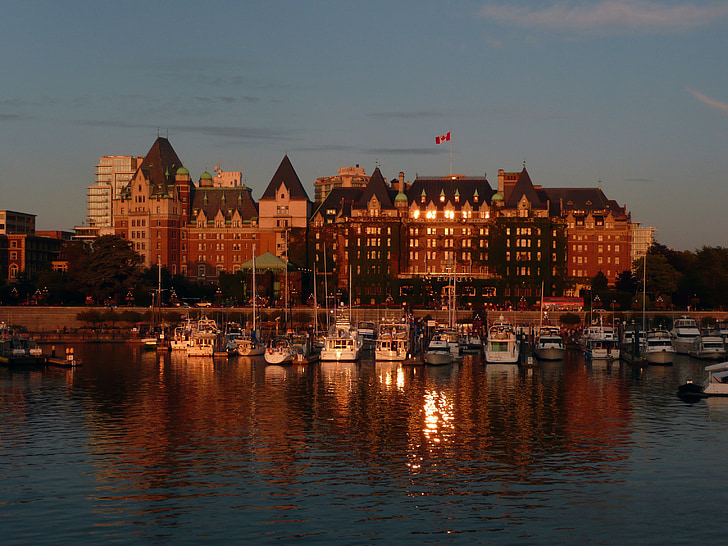
Victoria is the capital of British Columbia, Canada. The city is rich in natural resources and cultural heritage. At the same time, Victoria is one of the best places to live and retire in Canada due to its mild climate, beautiful environment, abundant medical resources, low crime rate and relatively high quality of life.
Victoria is known as the “Garden City” with beautiful scenery. Compared with the bustling city of Vancouver, Victoria has more of the leisure and comfort of a small town. In addition, Victoria has been rated as one of the best places to retire in the World many times.
In Victoria, you can taste fresh seafood and local cuisine, and you can also participate in various cultural activities and festivals. Besides, the city’s education and medical facilities are also quite complete.
Victoria has a temperate maritime climate and is the city with the best climate in Canada. It is a place with distinct four seasons and a mild climate. Even in summer, the temperature basically does not exceed 30℃, and in winter the temperature occasionally drops below 0℃.
There are many historical buildings in the city center of Victoria, the most famous of which is the Vitoria City Council Building. There is also the historic Empress Hotel, which is a castle-like hotel. When you walk through the buildings in the city center, you will feel like you are in a small British town.
Victoria is located on the west coast and has excellent port conditions, which has a positive impact on international trade and tourism.
The University of Victoria (UVIC) is one of Canada’s top comprehensive research universities and one of the largest comprehensive universities. It has been ranked in the top 3 of Maclean’s Canadian comprehensive university rankings for many years. The university was formerly known as McGill University Victoria College, which was founded in 1903 and is the oldest college in British Columbia. It has world-class teaching facilities, and many courses are highly renowned in North America and around the world, especially business management, science and engineering, economics, and fine arts.
The following factors make Victoria one of the best places to live in Canada:
- Most livable environment.
- Generous pension benefits.
- Improved infrastructure and health services.
- High medical level.
5. Montreal, Quebec
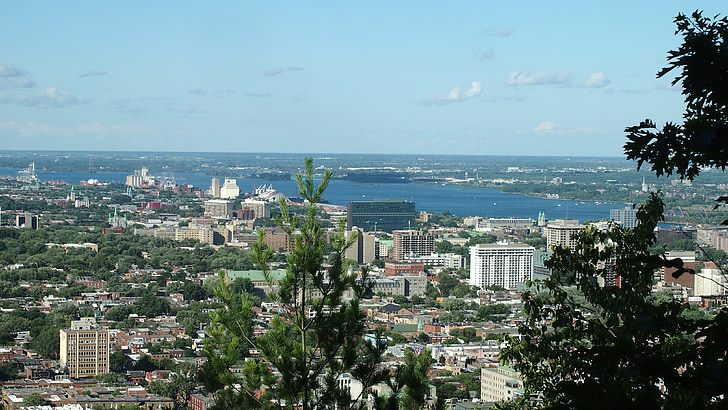
Montreal is recognized as one of the best places to live in Canada, and also one of the most livable cities in the world. It is Canada’s second-largest city and an important seaport. The city is famous for its unique cultural atmosphere, economic prosperity, and pleasant living environment.
Montreal has four distinct seasons and abundant rainfall. Winter is cold and long, with an average temperature of -9°C in January, and summer is relatively cool and short, with an average temperature of 21°C in July. Although it may be cold in Winter and hot in Summer, Montreal’s infrastructure and public services can meet the various needs of residents and ensure living comfort.
Montreal is one of the most important economic centers in Canada, with developed aviation, financial, design, film and other industries. Its population is growing rapidly, demonstrating its strong economic vitality and population appeal.
Montreal has been named a “City of Design” by UNESCO and one of the best cities in the world for studying abroad by a British higher education survey agency. Many well-known universities and colleges are located in this city, such as McGill University and the University of Montreal, providing good educational resources for new immigrants.
Montreal has very complete urban facilities, including numerous parks, museums, theaters and other public facilities, providing residents with a variety of cultural and entertainment activities.
6. Calgary, Alberta

Calgary is the economic, cultural and financial center of central Canada, known as the “Energy Capital of Canada“. It has a developed economy and good social welfare, which attracts many talents to gather here. Calgary not only has a world-class oil and gas industry, but also has advanced technology and high-quality human resources. You don’t have to worry about not finding a job here.
If you love nature and outdoor activities, then Calgary would be one of the best places to live in Canada for you. One of Calgary’s attractive features is its proximity to the Rocky Mountains. This location offers outdoor enthusiasts an exciting and active lifestyle: hiking, rock climbing, skiing and snowboarding are all just a short drive away. The city is also known for its extensive network of urban roads and bike paths, which stretch over 1,000 kilometers and create opportunities for active commuting and recreational activities, encouraging a healthy lifestyle.
Calgary can be one of the best places to live in Canada for families. This family-friendly city has many recreational facilities, so children can have a happy childhood here. And with Alberta Children’s Hospital ranked 12th on Newsweek’s 2026 list of the best pediatric hospitals in the world, parents are never far from professional healthcare institutions.
| Item | Number |
|---|---|
| Home Price | $587,300 |
| Family Income | $129,200 |
| Families with Children | 37.2% |
| Crime Severity Index | 75.22 |
| Unemployment | 8.5% |
| Access To Primary Care Provider | 87.3% |
7. Regina, Saskatchewan
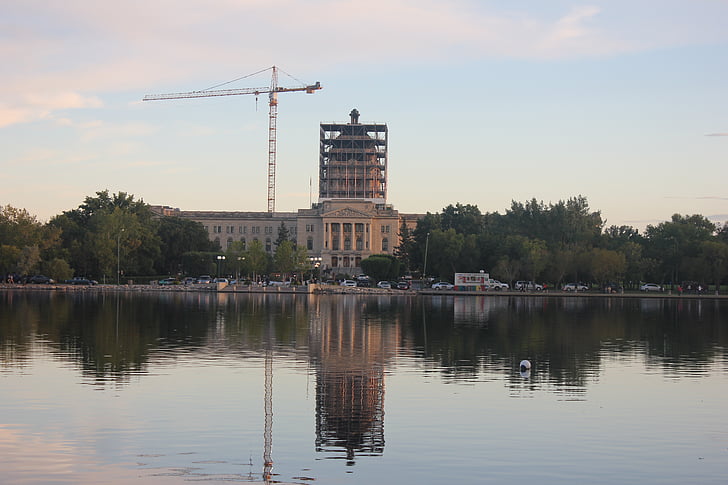
Regina is located in Saskatchewan, Canada. The province Saskatchewan is known as the “Breadbasket of Canada” and has rapidly developed its economy in recent years. Its actively promoted immigration policies have attracted many overseas professionals. So Saskatchewan has now become one of the fastest-growing economic regions in North America and one of the top choices for international investors, also one of the best provinces to live in Canada.
Regina City’s culture shows diversity – while English is the main language, you’ll also hear French, Filipino, German, Vietnamese, Chinese, Spanish, Ukrainian and Punjabi when living here.
Regina’s terrain is very flat, with hundreds of thousands of planted trees and shrubs around the city. There are also many parks and lakes nearby. Sports enthusiasts have many outdoor sports to choose from, including boating, swimming, canoeing, ice fishing, and almost every winter sport known to man.
Besides its beauty and diversity, Regina can be one of the best places to live in Canada also because of its low cost of living. Housing prices here are among the lowest in the country, making it the cheapest place in Canada to live. Basic health care is also cheaper here than in most other provinces, as is sales tax. Agriculture and natural gas are two industries that thrive in the area surrounding Regina, and both are a big stimulus to the local economy.
8. Quebec City, Quebec
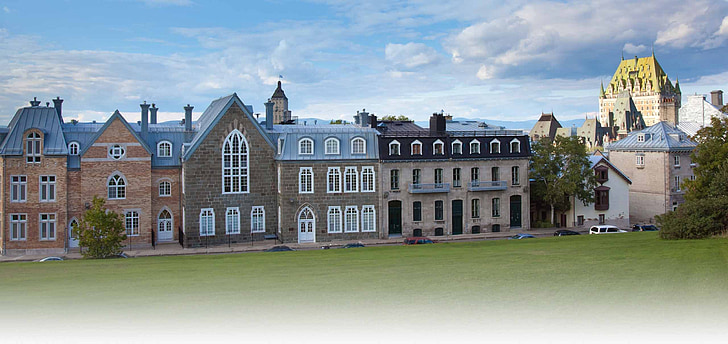
Quebec City is the capital of Quebec Province and the ninth-largest city in Canada. Even if different websites use different evaluation criteria, Quebec is always one of the best places to live in Canada. It is a famous cultural city with a strong French flavor and a long history. It is the only city in North America listed as a World Heritage Site by UNESCO. Living in this city is like being in a 17th-century castle.
Quebec is a perfect blend of traditional European culture and modern urban charm. The city’s culture and local residents are both very vibrant and creative. The wide variety of Quebec local specialties with unique flavors are very delicious. Living here, you will never worry about food.
Whether you like hiking or water sports, Quebec has it all. Here, you can enjoy the fun and excitement of nature all year round. In addition to recreational activity centers in and around towns, Quebec also has dozens of national parks throughout the province for people to enjoy.
9. Edmonton, Alberta
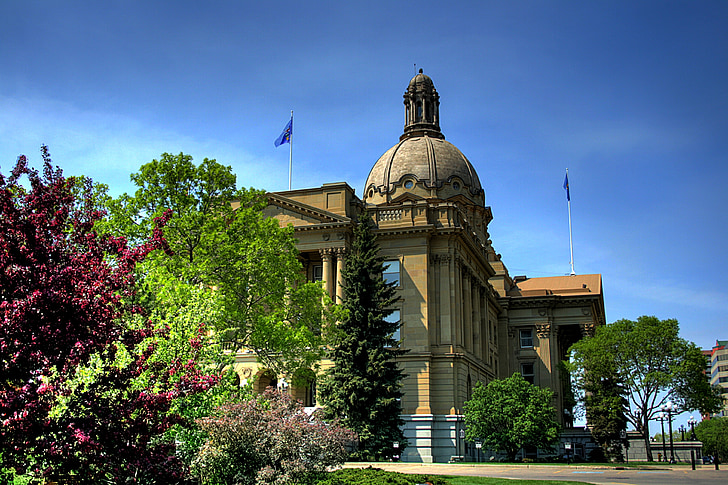
Edmonton is Canada’s fifth-largest city, also one of the best places to live in Canada. It is not only the cultural and educational center of Alberta, but also has convenient transportation with the Light Rail Transit (LRT).
Many festivals are held here every year, allowing you to fully experience the cultural atmosphere of Canada. West Edmonton Mall, as the largest indoor shopping mall in North America, meets all your shopping needs. At the same time, don’t miss Fort Edmonton Park, which is the largest historical park in Canada and allows you to appreciate the rich history and culture. In addition, Riverdale Park, as the largest urban park in North America, is 22 times the size of Central Park in Manhattan, New York, and is a great place to relax.
In the field of higher education, the University of Alberta in Edmonton is a world-renowned research university and a comprehensive university that is in no way inferior to any famous North American university. This is one of the reasons why many families choose to settle in Edmonton. It is the wish of most parents to let their children go to an excellent university.
| Item | Number |
|---|---|
| Home Price | $390,200 |
| Family Income | $114,400 |
| Population Growth | 7.50% |
| Unemployment | 6.90% |
| Crime Severity Index | 100.39 |
| Access to Primary Care Provider | 87.30% |
| Sunny Days Per Year | 321 |
| Walkability Score | 40 |
| Item | Number |
|---|---|
| Population Density | 1,836.20 |
| Adults Between 20-29 | 13.80% |
10. Saskatoon, Saskatchewan
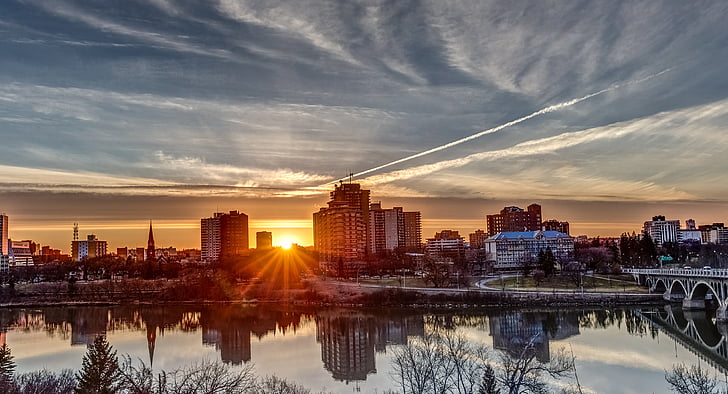
The name Saskatoon may be unfamiliar to many foreigners. There are not many tourists here, but it is the largest city and commercial, economic and cultural center in Saskatchewan, Canada. We have listed it as one of the most livable cities in Canada for the following reasons:
Saskatoon’s economy is based on agriculture, with wheat and rapeseed as its main products, and animal husbandry is also quite developed. At the same time, Saskatoon also has many large grain silos and livestock paddocks, demonstrating its strong agricultural strength.
At the same time, Saskatoon attracts a lot of investment with its diverse business forms and superior geographical location. Sole proprietorships or partnerships flourish here, injecting new vitality into the city’s economic growth.
In terms of transportation, Saskatoon has a unique advantage. Whether it is railway, road or air transportation, it is well connected, making the city an important hub connecting the east and west of Canada.
Saskatoon not only has plenty of sunshine and beautiful natural scenery, but also ancient historical buildings and modern museums waiting for you to explore. As a landmark building, the Bessborough Hotel provides residents with an excellent viewing platform.
Saskatoon is also known for its vibrant nightlife and outdoor activities. Whether you like to take in the sights or take part in a sporting challenge, there is something for everyone here.
With below-average housing prices, plenty of sunshine year-round, and a high percentage of people in their 20s, Saskatoon is one of the best areas to live in Canada, especially for young people and nature lovers.
| Item | Number |
|---|---|
| Home Price | $398,600 |
| Family Income | $103,900 |
| Population Growth | 7.60% |
| Unemployment | 5.20% |
| Crime Severity Index | 113.5 |
| Access to Primary Care Provider | 84.1% |
| Sunny Days Per Year | 320 |
| Walkability Score | 46 |
| Young People Aged 20-29 | 15% |
How to Find Best places to Live in Canada
Choosing the best area to live in Canada can impact your lifestyle and career, and improve your overall happiness. Whether it’s commute time, local amenities, community or access to downtown, here are some tips to guide your search:
- Determine your priorities: Whether you’re looking for ideal private accommodation, shared rooms or student housing, which of the many considerations are most important to you? This will help you narrow down your choices. If you need professional help in finding the best places to live in Canada, uhomes.com is an excellent choice. We offer quality and affordable housing rentals that are well-equipped, well-serviced, safe and convenient.
- Research and Visit: Fully research the properties and areas in Canada you are interested in online. Make sure to visit the property in person. This step is very important. Sometimes the information online is very different from what is displayed.
- Think Long-Term: You need to consider how the house or area you choose may change in the future and carefully weigh the investment value.
- Communicate with Locals: Contacting and communicating with local residents will allow you to gain first-hand experience and perspectives, providing valuable guidance for your choices.
If you’re thinking about studying in Canada, it’s crucial to find the right student housing. That’s where uhomes.com comes in. It’s a reliable platform that helps students like you find the perfect place to live in Toronto, Vancouver, Ottawa, Hamilton and many other cities. So far, they’ve helped more than 55,000 students successfully find their dream homes.

FAQs about Best Places to Live in Canada
What is the most livable place in Canada?
The most livable places in Canada include Toronto, Vancouver, Ottawa, Victoria, Montreal, Calgary, Regina, Quebec City, Edmonton, and Saskatoon, given housing prices, income, transportation, unemployment rate, crime rate and other factors.
Which Canadian city has the best quality of life?
Calgary, Edmonton, Ottawa, Vancouver, and Mississauga earn high scores for quality of life in Canada.
Where is the most affordable place to live in Canada?
The top 10 budget-friendly cities in Canada are Fredericton, Charlottetown, Moncton, Trois-Rivières, Windsor, Thunder Bay, Lethbridge, Trois-Pistoles, Saguenay, and Sherbrooke.
Where is the warmest and sunniest place to live in Canada?
Ottawa, Saskatoon, Kawartha Lakes, Winnipeg, Edmonton, and Calgary have more than 300 sunny days per year, making them the warmest and ideal for outdoor sports.
Where is the safest place to live in Canada?
Toronto is the safest city in Canada with the lowest crime rate at 286.9 crimes per 100,000 population. It has the lowest number of burglaries and is among the top 10 cities with the fewest incidents of arson and drunk driving.


